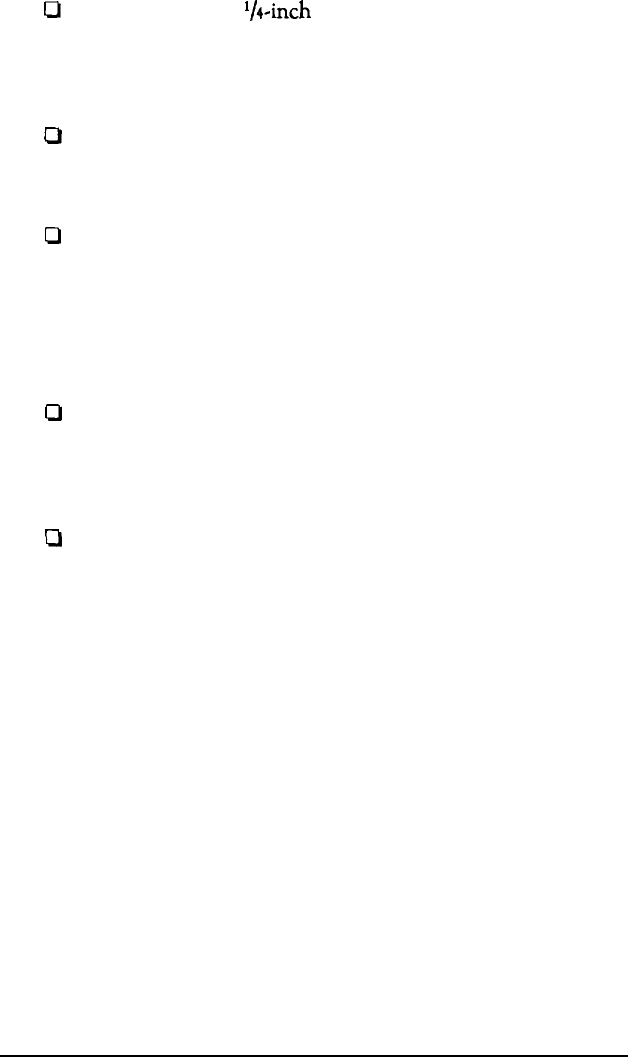
ci
ci
cl
cl
cl
The surface of a 5 ‘/r-inch diskette is exposed by the
read/write slot. Always hold the diskette by its protective
jacket and never touch the magnetic surface. The oils on
your fingertips can damage it.
Do not place anything on top of your diskettes, and be sure
they do not get bent. A diskette does not rotate properly in
the drive if it has been damaged.
Carefully label your diskettes and be sure to indicate the
diskette type and density. Attach labels firmly but gently,
and only along the top of a diskette (next to the
manufacturer’s label). Do not stick several labels on top of
one another; too many labels can make it difficult to insert
and remove the diskette in the drive.
It is best to write on a diskette label before you attach it to
the diskette. If you need to write on a label that is already
on the diskette, use only a soft-tip pen-not a ballpoint pen
or a pencil.
Store diskettes in their protective envelopes and in a proper
location, such as a diskette container. Do not store diskettes
flat or stack them on top of each other.
Write-protecting Diskettes
You can write-protect a diskette to prevent its data from being
altered. When a diskette is write-protected, you can read it and
copy data from it, but you cannot store new data on the diskette
or delete any files it contains. If you try to change data stored on
a write-protected diskette, MS-DOS displays an error message.
3-16 Using Your Computer


















